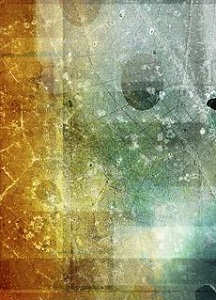 Grief arises as a product of a loss that we have experienced. It is associated with losses that may include a person’s health, job, relationship, pet, or loved one. We may not be able to describe the roller coaster of emotions, yet we do know that we are not ourselves. When we feel out of sorts, sensations surface such as low self-esteem, illness, depression, and confusion, which can manifest into thoughts that our feelings are out of our control. As a result, this full-body experience may be difficult to process or verbalize. To mend this sorrow, the expressive arts can create a doorway to the unspeakable by opening all channels to the grieving body.
Grief arises as a product of a loss that we have experienced. It is associated with losses that may include a person’s health, job, relationship, pet, or loved one. We may not be able to describe the roller coaster of emotions, yet we do know that we are not ourselves. When we feel out of sorts, sensations surface such as low self-esteem, illness, depression, and confusion, which can manifest into thoughts that our feelings are out of our control. As a result, this full-body experience may be difficult to process or verbalize. To mend this sorrow, the expressive arts can create a doorway to the unspeakable by opening all channels to the grieving body.
Opening Up to Grief
Expressive arts therapy encourages movement of the imagination that we may struggle with during our grieving process. Our art influences how we look at, unblock, wrestle with, and shed light on the need to distance and detach from our pain. When we dodge grief to avoid, deny, or block the inevitable pain, the arts invite the imagination of these stuck places to come to the surface in images, movement, color, and sound. Our art process releases the tension of grief, allowing it to expand and contract, while providing a safe container in which this process can take place. When we create, we give ourselves permission to examine all that is happening within our grieving bodies.
“Art shows how the difficulty can contain its cure if channeled into life-affirming expression.”
-Shaun NcNiff
Understanding the Experience of Grief
There are five to seven stages often associated with the grieving process. They may be experienced as denial, pain, anger, bargaining, depression, upward turn, reconstruction, and acceptance. The experience can feel like a roller coaster ride of ups and downs, mood swings, and erratic behavior. When we drop in to our art-making, the grief is given containment—a place to be held. This containment permits the pain to speak and encourages our healing. Making sense of what is happening comes to light. We may notice this in a color that strikes a mood, or a picture that recalls a memory, or an emotion to be felt. It is an opportunity for the most vulnerable parts of a grieving body to speak, feel safe, be heard, and be externalized. Once the art is created, we can then dialogue with it further and support our need to metabolize all that is going on within us.
“The reward for attention is always healing.”
-Julia Cameron
Facing Grief and Piecing Life Together
Fragments of memories, like bits of broken glass, can be difficult to hold emotionally around anniversary dates, picture books, and mementos. They can feel like a jab to the heart, invite an unwanted memory, or open a floodgate of emotion. These fragments seek meaning and solace, yet can wander in and out, tugging and vying for attention at awkward moments. As we seek to piece our lives together after a loss, the expressive arts can heal us by giving these bits and pieces the attention they deserve and need. For a moment, we can sink into ourselves and allow our memories, thoughts, and feelings—those we desperately struggle with—an opportunity to speak, to be heard, and to be felt. Each time that we engage the process using the arts, we give ourselves a break, a breath, and a reprieve from the pain that seeks expression beyond talk therapy.
References:
- Cameron, J. (1992). The Artist’s Way. New York: Tarcher/Putnam Publishing.
- McNiff, S. (2004). Art Heals. Boston, MA: Shambhala Publications.

The preceding article was solely written by the author named above. Any views and opinions expressed are not necessarily shared by GoodTherapy.org. Questions or concerns about the preceding article can be directed to the author or posted as a comment below.

 Art Therapy as a Treatment for Depression
Art Therapy as a Treatment for Depression Logotherapy: How a Few Questions Can Aid the Grief Process
Logotherapy: How a Few Questions Can Aid the Grief Process The Pendulum of Grieving
The Pendulum of Grieving

